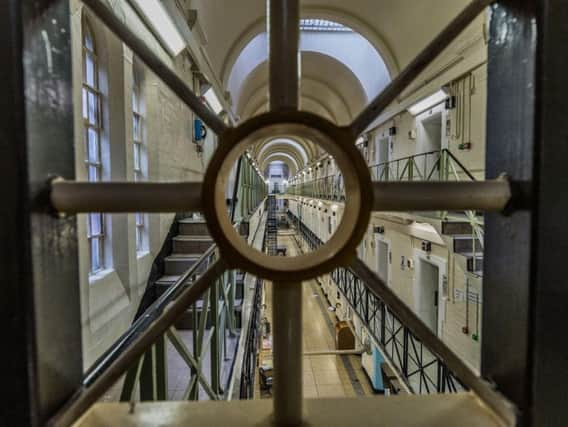Why a scheme is bringing criminals face-to-face with their victims


So-called ‘restorative justice’ sees an intermediary arrange a meeting between an offender and their victim, if both sides agree, as part of the rehabilitation process.
It aims to help a victim recover from their ordeal while also showing the criminal the impact of their actions in a bid to prevent reoffending.
Advertisement
Hide AdAdvertisement
Hide AdFrom October 2018, a new scheme offering the service began across West Yorkshire.
West Yorkshire Police and Crime Commissioner Mark Burns-Williamson has commissioned Preston-based non-profit organisation Restorative Solutions to run the scheme for the next three years in a contract worth £900,000.
A variety of restorative justice services have been operating in different parts of West Yorkshire for the past few years but this is the first time it is being brought together under one provider.
The scheme also covers Wakefield Prison and HMP Leeds, which will continue to “carefully manage” meetings between victims and offenders, Mr Burns-Williamson said.
Advertisement
Hide AdAdvertisement
Hide AdHe said there was “clear evidence” that the approach worked.
He said: “Although this scheme has previously been available in pockets within the county, this expansion to a West Yorkshire-wide service represents a huge step forward.
“There is clear evidence of the difference this approach has made and I have worked extremely hard over recent years to reach this vision in conjuction with the police and key partners.”
West Yorkshire Police’s Assistant Chief Constable, Catherine Hankinson, was among 100 people from law enforcement agencies who heard from some of those helped by restorative justice at a launch event in Batley.
Advertisement
Hide AdAdvertisement
Hide AdShe said: “Restorative justice has been shown to help reduce reoffending by making offenders understand the true harm they have caused.
“The practice is already used in some areas of England and Wales and ensures that vicitims , who are willing, are able to meet their offenders in order to explain the impact of the crime and to make offenders face up to their actions.”
‘It didn’t make it okay, but helped’
A woman from West Yorkshire said ‘restorative justice’ helped her father after his sister was murdered.
The woman, who wanted to be named only as Summer, said she now volunteered for Restorative Solutions to help others in similar situations.
Advertisement
Hide AdAdvertisement
Hide AdShe said her father’s sister had been killed more than 10 years ago but because the offender pleaded guilty rather than facing trial, her father had been left with unanswered questions. He met the offender in prison and with the help of facilitators, they talked about what happened.
Summer said: “Dad understood more about the circumstances around my aunt’s death. It didn’t make it ok, but it helped him.”